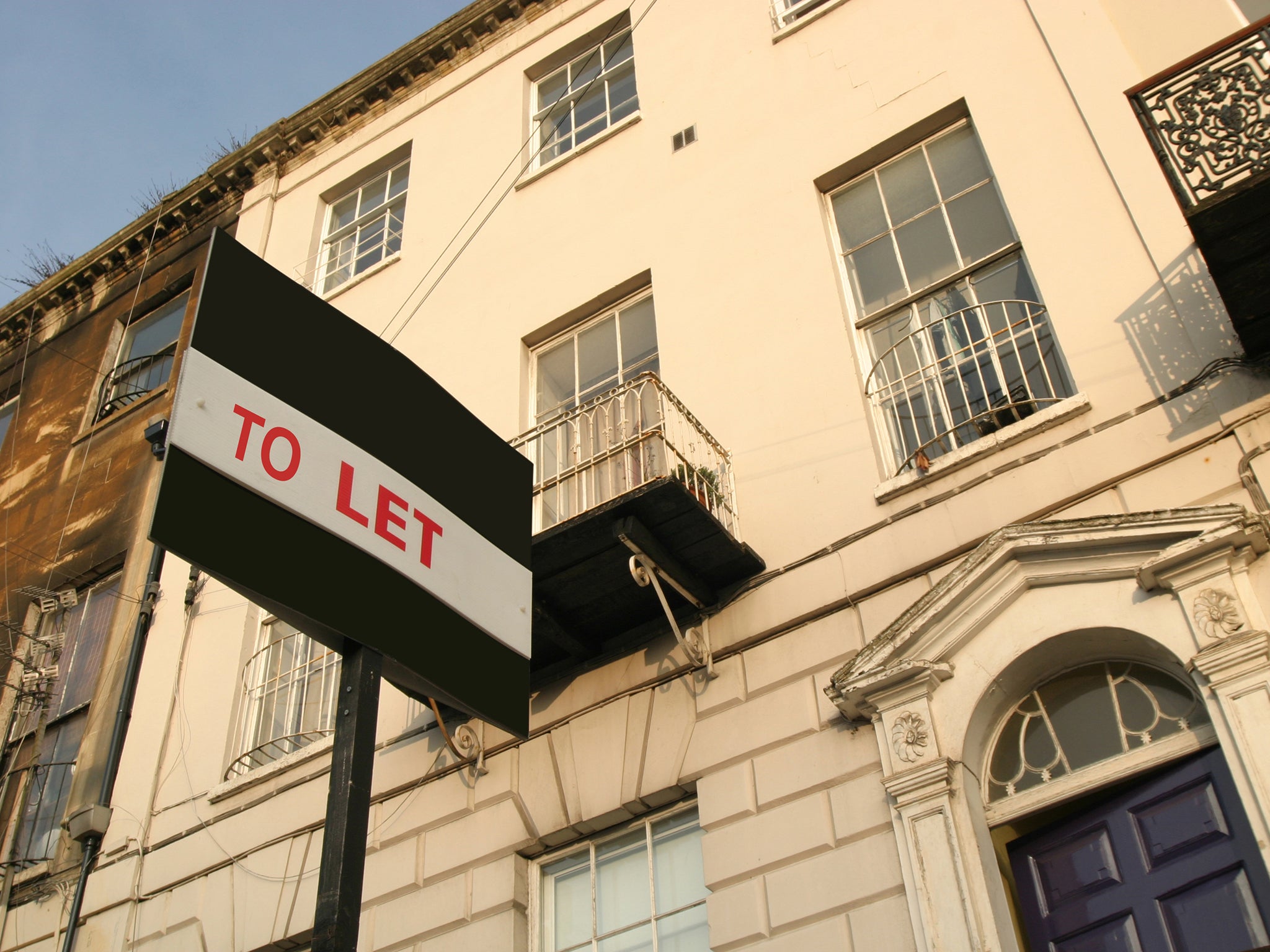Five things landlords do to control their tenants
From restricting who and what can live with you to how warm the temperature is, Tom Simcock details how property owners exercise their authority

Your support helps us to tell the story
From reproductive rights to climate change to Big Tech, The Independent is on the ground when the story is developing. Whether it's investigating the financials of Elon Musk's pro-Trump PAC or producing our latest documentary, 'The A Word', which shines a light on the American women fighting for reproductive rights, we know how important it is to parse out the facts from the messaging.
At such a critical moment in US history, we need reporters on the ground. Your donation allows us to keep sending journalists to speak to both sides of the story.
The Independent is trusted by Americans across the entire political spectrum. And unlike many other quality news outlets, we choose not to lock Americans out of our reporting and analysis with paywalls. We believe quality journalism should be available to everyone, paid for by those who can afford it.
Your support makes all the difference.The last 20 years have seen a boom in private renting. Approximately 4.6 million households in England, about 19 per cent of all households, now rely on a private landlord for the roof over their head – and there are growing concerns over poor standards in the sector.
In 2018, a quarter of privately rented houses failed to meet the decent homes standard, meaning that they contain hazards, are not in a suitable state of repair, do not have reasonably modern facilities or lack adequate heating.
There is also growing evidence of the adverse effects renting and landlord practice can have on tenants’ wellbeing. Research has shown that private renting can cause tenants anxiety due to a lack of security and control over their home. With this in mind, we examine five ways that landlords can exercise control over aspects of your life.
1. Your ability to have a pet
If you’re looking for a new rented property and want to bring your dog or cat with you, you might have a struggle on your hands. Blanket bans on pets are unenforceable by landlords under the Consumer Rights Act 2015, and landlords must not unreasonably refuse permission to their tenants. This could include where the landlord believes the animal may cause damage, the property isn’t suitable for the type of pet, or there are leasehold restrictions. Even so, only 7 per cent of landlords are reported to offer pet-friendly properties.
One of the top concerns from landlords is the increased risk of damage pets may present to properties. However, the Dogs Trust suggests that pet owners are generally more responsible tenants and are more likely to want to stay in the property for longer. Research has also shown that pets have a beneficial effect on the psychological wellbeing of their owners – so efforts to ensure tenants can have control over this vital aspect of their lives should be welcomed.
The government is planning to rewrite the model tenancy agreement to support more renters to have “well behaved” pets. However, this places no new legal duty on private landlords to allow tenants to have pets and with landlords still able to veto any request for pets, this is unlikely to have much effect. There is some positive news, though: some corporate landlords in the evolving build-to-rent sector are responding to consumer demand and looking to stand out from the crowd by offering “pet-friendly” tenancies.

2. Your heating
It’s that time of year again: it’s cold outside, and you want to turn up the heating and cuddle up on the sofa. Unfortunately, your landlord has encased your thermostat inside a clear plastic box, and the temperature in your home is entirely subject to their whims.
In certain circumstances, such as in shared properties where bills are included in the rent, landlords have been known to lock away control to the thermostat. This was the case for Alex, whose story went viral when his landlady put his Nest thermostat in a lock box.
Preventing the tenant from controlling the temperature in their home could be unlawful. The Housing Health and Safety Rating System (HHSRS) says that residents “should” have control over their own heating systems. Landlords could face enforcement action, fines or prosecution if their actions cause the temperature in properties to drop to hazardous levels.
3. Your income and job type
Your income and job type can be major stumbling blocks when it comes to renting property. Some landlords can have strict eligibility criteria on their tenants’ level and source of income. In one case, a landlord banned plumbers and zero-hours workers from his properties.
Other landlords operate blanket no DSS policies, where they refuse to let to tenants who are on benefits. This means that the 924,000 privately renting households being supported by housing benefit face exclusion and stigma in trying to find their next home.
4. Your relationships and family
You think you’ve met the love of your life and want them to move in with you. If you own your own home that isn’t much of a problem, but if you are renting you’ll need your landlord’s consent. In one case a tenant who asked if her partner could move in was informed that her landlord didn’t like “girls living with their boyfriends” and so had to leave her home. Even if the landlord does agree to a partner moving in, you may find that they take the opportunity to change the rent as well.
At the other end of the scale, relationship breakdowns can be unpleasant enough without having to continue living with your partner for months when your landlord refuses to end the tenancy early.
There are other relationships that landlords may object to. Some landlords refuse to let to families with children due to concerns over damage or suitability of the property.
5. Making the house a home
Being able to make a home in your house is associated with positive effects on people’s wellbeing. Research has found that landlord practices such as preventing renters from putting up pictures or redecorating, or being stuck with the landlord’s choice of furniture stop them from feeling at home in their property.
Research has also demonstrated that the inherent insecurity of tenure has negative impacts on people’s health and wellbeing. Under current law in England and Wales, landlords can evict tenants from their property with no reason needed.
The government has announced plans for a new better deal for renters, promising the end of Section 21 “no-fault” evictions in England. Even if this changes, private renters will still lack control over some of the most fundamental parts of their home life.
esearch fellow at Edge Hill University. This article originally appeared in The Conversation
Join our commenting forum
Join thought-provoking conversations, follow other Independent readers and see their replies
Comments